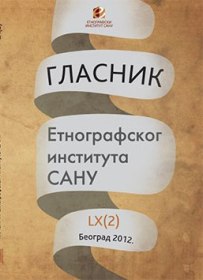Аспекти посматрања и идентификације губитника и добитника транзиције у друштву Србије
Assessing and Identifying Transitional Losers and Winners in the Serbian Society
Author(s): Vesna Trifunović Subject(s): Anthropology
Published by: Етнографски институт САНУ
Keywords: losers; winners; transition; identification; discourse; media
Summary/Abstract: This paper presents ways to assess and evaluate losers and winners in the Serbian transitional society, through several concrete examples. Therefore, the paper is a follow-up of the manuscript published in the previous Bulletin of Institute of ethnography, and fits into the theoretical framework already stated. The main indicator of a variety of assessment regarding losers and winners is found among comments made by visitors of relevant Internet web sites, referring to news about societal problems and issues during the process of post-socialist transformation. These are directly linked with a phenomenon of losing or winning in transition, such as unemployment, poverty, criminal, success, failure, wealth, and power. Hence, news from two internet sites "Blic" и "B92" served as a source, while their visitors ‘commentaries to the particular news served in the analysis. Specific news was used to define a particular problem or issue, and the commentaries were seen as reactions to the news. The commentaries contain readers’ attitudes, assessment of particular issues and discourses overview. These comments were chosen based on whether they refer directly to the problem of losing/winning in transition, and on their diversity regarding assessment of the problem itself. At the same time, posted texts on the mentioned sites were not unbiased, and they can also serve to identify losers and winners of transition. Defining a category of losers or winners in transition is a complex issue of various interpretations and constructions, making thus a discrepancy in attributed meanings among the members of Serbian society. Controversy and contradictions in expressed attitudes about losers and winners, as well as understanding of these categories, could be explained by various aspects and outlooks held. In brief, an existing particular social heteroglossia, assumes many different readings and attitudes regarding the categories, caused by various factors. The analysis shows several dominant, different but mutually connected aspects in assessing and evaluating losers and winners of transition.
Journal: Гласник Етнографског института САНУ
- Issue Year: LX/2012
- Issue No: 2
- Page Range: 125-138
- Page Count: 14
- Language: Serbian

